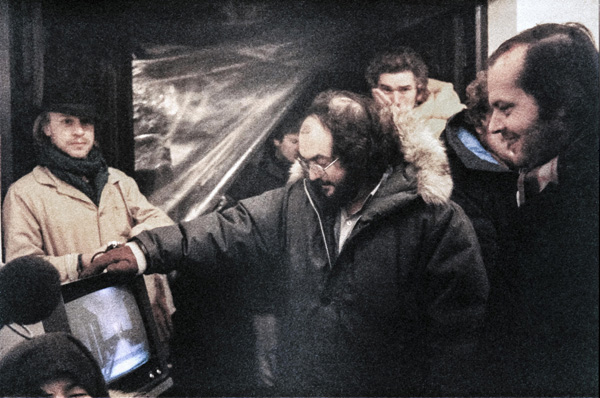Leon Vitali spent more than two decades working for Stanley Kubrick, though “working” doesn’t quite do his career justice, as his entire existence came to revolve around his employer. Director Tony Vierra shines a light on Vitali and Kubrick’s complicated professional relationship, which began when Kubrick was casting a part in his 1975 costume drama Barry Lyndon. From the start, there is a sense of what made Vitali’s lengthy collaboration with the notoriously controlling auteur possible: when the actor received the first script pages, they included a note from Kubrick that read, “Learn these lines,” and so he did, obsessively.
Vitali’s ability to follow orders with a soldier’s precision didn’t just help him survive a grueling shoot, it ingratiated him to Kubrick, who eventually hired him to work on his sets and in his office. Their reunion took place just as the director was getting interested in The Shining (1980), and according to various accounts, the actor threw himself into every new task with maximum effort and a relentless drive to do it well. During the preproduction stage of the Stephen King adaptation, Vitali rose from keeping painstakingly detailed notes to helping scout locations to eventually casting the actor who would play the lead role of Danny Torrance.
There is something genuinely touching about Kubrick’s blind faith in Vitali. Theirs was most definitely a teacher-student relationship, but one that was somehow simultaneously both nurturing and distant. Evidently, there were few people Kubrick had complete trust in, but his protégé was one of them, and so if he needed anything, he would have Vitali do it. He wouldn’t ask. He would simply tell him, and if Vitali claimed it was beyond his abilities or knowledge, Kubrick would quickly dismiss his concerns. It helped that the assistant was so in awe of the director that he would will himself to succeed.
But the film argues that on several occasions, Vitali brought something of himself to the table as well. For example, his knowledge of modern art led to the casting of the actresses who played the ghostly twins in The Shining—specifically, the inspiration of Diane Arbus’s 1967 photograph “Identical Twins, Roselle, New Jersey, 1967.” Similarly, it was through his background as an actor that he helped craft the memorable performances of Danny Lloyd and R. Lee Ermey in The Shining and Full Metal Jacket (1987), respectively. Historically, most of the credit has been given to Kubrick, but here the actors themselves explain what lengths Vitali went through to prep them for their roles.
Of course, not everyone has such a positive view of Vitali. Certain parties speak of him as Kubrick’s slave or glorified messenger, though in most of those cases, they seem to be venting frustration toward the wrong target. This documentary is arguably as much about Kubrick as Vitali, and it doesn’t always put the former in the kindest light. Those who worked with him agree that as much as you gave to him, you always had to give more, and that he could be incredibly self-absorbed at times.
But the main takeaway is just how busy Vitali’s days as Kubrick’s assistant were. When he wasn’t on-set doing pretty much every job imaginable, he was at the director’s estate, constantly on the phone. Yet Vierra never lets his Vitali come across as a stooge and, in fact, makes him a sympathetic figure. Vitali in the present day still looks somewhat boyish, even if all the wear and tear of the intervening years is evident. There are also some darkly funny touches to lighten up passages about how he could be Kubrick’s whipping boy. At one point, the audio is set to scenes from a Frankenstein adaptation Vitali starred in, where he is being chased by the monster.
Ironically, it’s through Vitali that we get the sense the director could also be quite gentle and kind. Along with sharing a master-student relationship, the film implies Kubrick might have been a paternal figure as well, especially given how Vitali’s father, who died when Leon was still a child, was similarly volatile. As a result, Vitali came to work for Kubrick prewired with a coping mechanism; he was already used to distancing himself emotionally in the face of someone else’s rages.
The film puts forth the idea that as Kubrick’s assistant, Vitali eventually began to see the world through his teacher’s eyes. There’s definitely truth to that. One of the more touching details involves Vitali directing Kubrick for the recording of a speech to the Director’s Guild of America, in which his approach was not so different from the master’s.
The film covers the period of the director’s work from Barry Lyndon onward, which some might argue leaves out his most important accomplishments, but the sheer volume of behind-the-scenes footage and gossip makes this worthwhile viewing for his fans. Meanwhile, Filmworker is also a personal story about two people whose traits made them highly compatible, and who together helped create, extend, and ultimately preserve a major film legacy.

















Leave A Comment